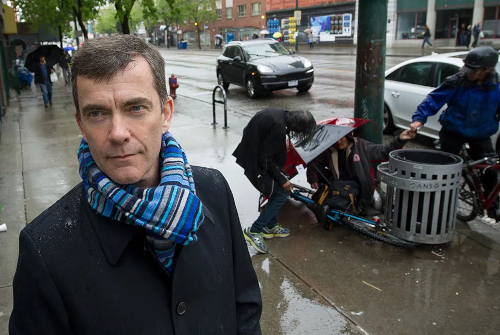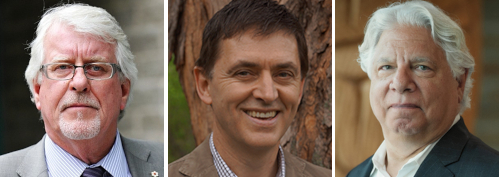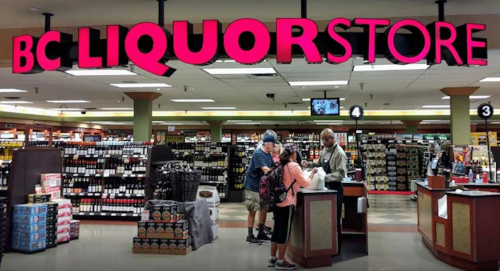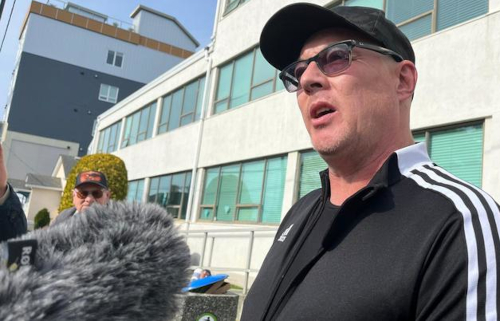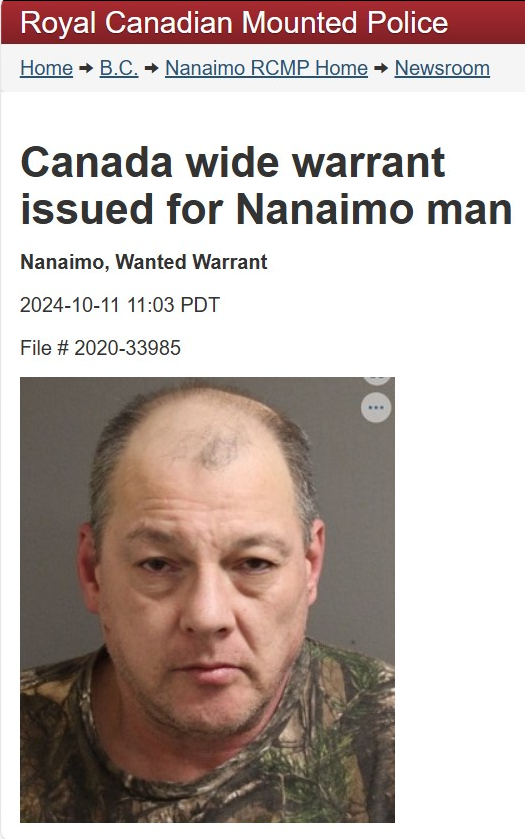
Reflections on Vancouver, British Columbia and other topics, related or not
The pharma industry’s
poverty pimps
“Safe supply” advocates push opioids
for personal profit
Greg Klein | May 10, 2024
Julian Somers’ renegade proposals might stop short
of addiction-enabling, but they overlap with the
NDP’s addiction inducements.
There’s something in it for them, and it’s not just the intangible benefits of helping people destroy themselves as well as family communities and Canadian cities. Many key advocates for “safe supply” profit directly from “safe supply.” They use current or former positions with publicly funded health agencies and academia to push propaganda, while forming or joining companies to push opioids.
This under-reported info comes to greater light in a recent interview between clinical psychologist Julian Somers and Postmedia journalist Brian Lilley. That’s Toronto Postmedia—B.C. flakery gets more MSM scrutiny there than here.
As an academic and researcher, Somers has been prominent in addiction issues since the 1990s. In recent years, however, he’s been “excommunicated” by the drug-enabling community.
That’s hardly surprising when he says people have to “look at the money” to understand drug policy advocates. Health agency management and academic researchers rely on public funds for their salaries, staff and grants. They depend on “the flow of funds linked to particular policies. De-crim and what’s being referred to as ‘safe supply’ are major thrusts of current federal and B.C. provincial politics, and are essentially purchasing advocates.”
Central to their B.C. campaign, he said, is the government- and industry-funded British Columbia Centre on Substance Use, created by people from the B.C. Centre for Excellence in HIV/AIDS. They’ve “re-branded, re-titled their [HIV/AIDS] initiative but appeared to have preserved the same overall focus on pharmaceuticals” despite the drugs being “a relatively minor component of helping to prevent and treat addiction.”
Now, eight years into a formally declared public health emergency of toxic drugs, “the only way to perpetuate a mortality crisis is to keep putting people at risk every single day,” Somers said. “We have no prevention strategy.... Everything is focused on supply.”
Either because they’re certain they’re right or smug in their status,
Perry Kendall, Mark Tyndall and Martin Schechter seem unconcerned
about conflict-of-interest scrutiny.
Confident of their role as “architects of a new era,” Somers said, several advocates “formed their own companies while in public office and while lobbying for safe supply.” Somers didn’t name names, so I’ll take responsibility for square-bracketed info:
As Somers told Lilley, “This includes our former provincial health officer [Perry Kendall], who formed an opioid company [variously called FPP Inc., Fair Price Pharma or FP Pharma], his deputy [Mark Tyndall], who formed an opioid vending machine company [MySafe Project]; the chief scientific officer [Martin Schechter] of our major health funding organization, the Michael Smith Foundation, who also was an HIV/AIDS researcher, co-founded the opioid company [FP Pharma] with our PHO [Kendall].”
Lilley: “They founded companies to supply opioids to safe supply?”
Somers: “Exactly.… They all worked together on HIV/AIDS.”
[In another corporate move, Evan Wood, also a former denizen of the B.C. Centre for Excellence in HIV/AIDS and B.C. Centre on Substance Use, became chief medical officer for Numinus Wellness, a company selling psychedelics.]
Calling “safe supply” a “very dangerous set of policies,” Somers said the advocacy “doesn’t have much to do with science, it has to do with other things including financial opportunities.”
The tactics of advocacy sometimes seem desperate, but they’re successful.
After Somers and co-researchers presented a critical review to Alberta’s health ministry, the B.C. Centre on Substance Use quickly organized a hit campaign, Somers stated. “Mainstream media ate it up.” The BCCSU went further, trying to get Somers cancelled from speaking engagements, he added.
Referring to American opportunists moving between the Food and Drug Administration (FDA), pharmaceutical industry, academia and health agencies (Robert Kennedy has much to say about that), Somers stated a similar situation exists in Canada. “This fluidity is part of the problem” and includes politicians considering post-political careers with Big Pharma.
He says B.C. opioid advocates/suppliers “believed potential conflicts of interest would never rise to the point of scrutiny” because they’re convinced that they’re right. Maybe that’s so. Or maybe they’re just displaying typical poverty pimp arrogance, emboldened by their unassailable status within B.C.’s flake establishment. Like other influential British Columbians, they might also enjoy their power as social engineers and even take delight in destroying normality.
Bonnie Henry followed her Big Pharma-friendly Covid policies
with a disastrous recommendation to legalize dangerous drugs.
Results included more crime, greater exposure to used needles,
and hospitalized junkies sickening other patients and staff
with fentanyl fumes.
Somers took shots at Kendall’s successor as provincial health officer, establishment saint Bonnie Henry. Her argument that de-criminalizing drugs is necessary to reduce stigma is, “in my view, a crazy assertion.” Henry’s call for even further legalization is “another crazy idea,” he added.
B.C.’s vax-pusher-in-chief claims abstinence can’t work because, she insists, opioid addicts can never recover. According to Somers, “If that’s your belief, you have no business designing policies related to addiction.”
With an October election looming, “safe supply” might go the way of de-criminalization, an especially embarrassing NDP flip-flop. Just as de-crim’s health hazards and crime became too outrageous for even poverty pimp premier David Eby to ignore, “safe supply” has become known for “diversion.” The original recipients sell the stuff to buy even stronger drugs. Often channeled through gangs, “safe supply” goes to teens and other up-and-coming addicts.
But don’t be surprised by a de-crim and “safe supply” revival following an NDP election victory. Maybe even a B.C. United victory. They’re ambitious copy-cats, baffled by the NDP’s social revolution rhetoric. At any rate, leniency towards possession has long been the cops’ policy in Vancouver, Toronto and some other locations.
Of course one weakness of “safe supply” results from addicts demanding the most dangerously powerful shit possible. Legal and relatively safe and affordable supply has been available—in Quebec and Newfoundland all along, and in the other eight provinces and most parts of the territories since Prohibition ended.
Is society at fault if degenerates abjure drug supply
that’s legal, relatively safe and reasonably affordable?
But Somers’ own proposals are, to use rather non-academic terminology, naive suck-ass bullshit. He wants governments to give addicts everything but drugs—free homes, free incomes, free food, free everything. Except for the lack of intoxicants, these are among the same inducements offered by B.C.’s addiction-encouraging social engineers.
In most cases free everything would be a lifetime entitlement, although Somers doesn’t seem to think so. In fact this clinical psychologist believes addicts when they tell him they want jobs.
If he falls for that, can Somers have much insight into junkies? The causes are various but might be rooted in an exceedingly superficial society that took hold of Canada beginning at least in the post-WWII years. Regardless, an awful lot of Canadians lack any ability to withstand the adversity of economic decline and moral confusion. The problem seems far worse here than in other Western societies, with the possible exception of the U.S. Somers almost confirms Canadians’ dependency on easy affluence with his belief that unlimited free stuff will curtail personal dysfunction.
Much more than untreated mental illness, this widespread degeneration of character must explain the addiction epidemic. Canada now produces misfits on an unprecedented scale, often immature, confused, resentful freaks with obvious narcissistic or sociopathic tendencies. But for all that, outright insanity likely doesn’t set in until after they become addicts. Prior to that incredibly stupid lifestyle choice, they’re probably not clinically insane. They’re just fucked up.
What government program’s ever going to fix that?
And in other poverty pimp news…
Repeat offender and high-level fentanyl dealer
Kerry Wallace Chang brings his benevolence
to the Nanaimo Area Network of Drug Users.
According to an April news story, Kerry Wallace Chang told court he works with the Nanaimo Area Network of Drug Users to “help with the crisis [that] is going on in our city.”
NANDU is a spin-off of the Vancouver Area Network of Drug Users, both founded by Ann Livingston, a B.C. stereotype who gives the impression that anyone in B.C. with more nerve than intelligence can create one’s own tax-funded poverty pimp sinecure. Although usually inarticulate, VANDU/NANDU rhetoric amounts to little other than addiction advocacy.
So why was Chang telling a judge about his NANDU altruism? He’d just been convicted for illegal possession of 24 grams of fentanyl, almost nine grams of methamphetamine and about $20,000.
Of course he escaped prison time for that but wracked up another conviction the following week, this time for possession for the purpose of trafficking of about 531 grams of fentanyl along with 9.5 grams of meth and 700 milligrams of gamma hydroxybutyrate (GHB), often used as a date rape drug.
Chang faces further charges of using the dark web to traffic drugs including meth, oxycodone, cocaine, MDMA, Xanax and “what was advertised as heroin but turned out to be deadlier fentanyl, mixed with cutting agents,” reported the Times Colonist.
Prior to last month, Chang’s record already boasted 35 convictions for offences involving drugs, property crime and violence.
Even a B.C. judge might eventually send this guy back to prison. Will NANDU find an equally suitable replacement?
Update: NANDU criminal Kerry Chang on the run
From an October 11, 2024, RCMP statement:
A Canada wide warrant has been issued for the arrest of 58-year old Kerry Chang for failing to appear in Nanaimo Provincial Court on September 20, 2024 for sentencing on drug related charges.
